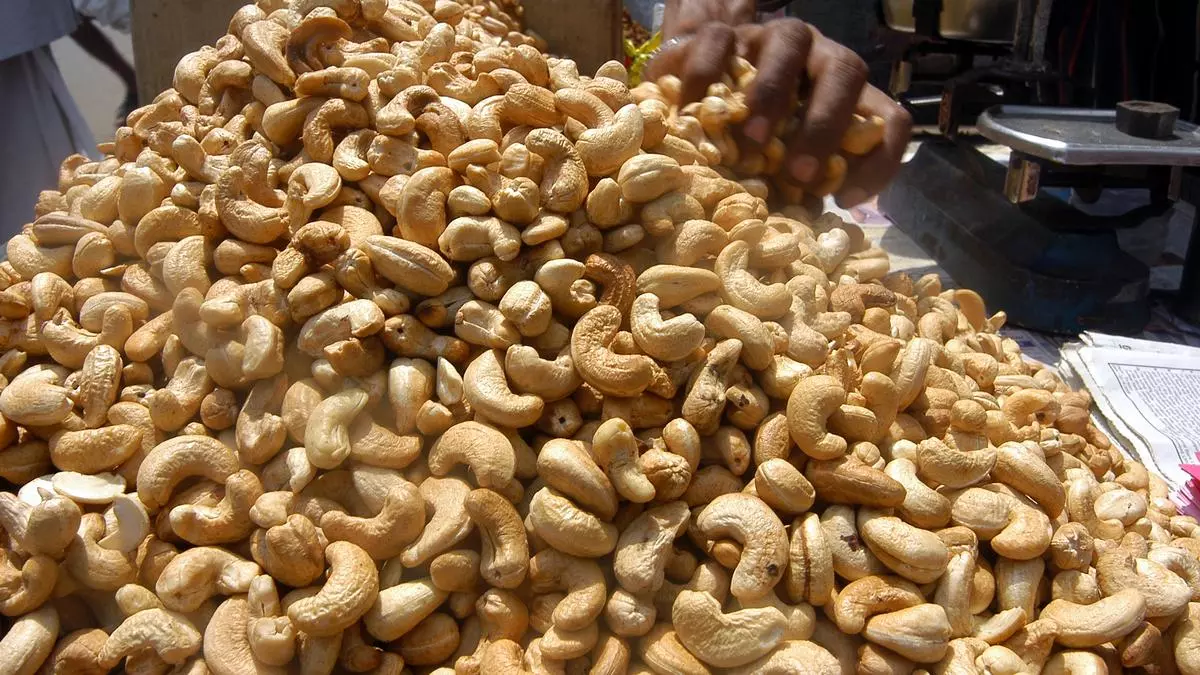APEDA announces 40% subsidy on machinery for cashew industry
In a bid to revive the sagging cashew exports, the Government has announced a slew of measures including a subsidy for upgradation of processing machinery and support for branding and marketing of the commodity overseas.
“Cashew is one of our focus products and we will take up the infrastructure development of the sector. We are according highest importance to cashew exports,” said Abhishek Dev, Chairman, Agricultural Processed Foods and Products Development Authority (APEDA).
Addressing the Cashew Convention, organised by the All India Cashew Association in Bengaluru on Thursday, Dev said financial assistance will be provided to the exporters to upgrade their machinery. “There is a dire need to upgrade the machines and through our financial assistance scheme we hope that the industry will to some extent utilise the funds to modernise themselves,” Dev said.
A subsidy of 40 per cent on the machinery cost with a slab of ₹2 crore would be provided to cashew exporters, said Tarun Bajaj, Director (BEDF), APEDA. “This will definitely bring in more efficiency, enhance their competitiveness and quality besides and help the industry achieve economies of scale,” Bajaj said.
The Indian cashew sector, which has been facing challenges such as lack of modernisation, rising labour costs among others, has seen the exports dwindle sharply in the recent years.
Dev said the Indian cashew exports have fallen from around $917 million in 2017-18 to around $368 million in 2023-24. “One time we were exporting around 80 per cent of the global exports. Now we are just about 8 per cent. We have fallen quite behind in exports,” he said.
The APEDA chairman also called upon the Directorate of Cashew Development to work on improving production. “We are covering only 50 per cent of the requirement of cashew through domestic production. There is lot of scope for improving production,” Dev said adding that APEDA is also looking at a cluster-based approach for the development of the sector. Two places – one in Kollem, Kerala and Chandgad in Maharashtra have been identified to promote integrated development for the cluster-based approach.
APEDA will also help the industry to promote the exports of cashew, which it considers as one of the 25 star products. “We plan to brand and market cashew as a global product of India. We will be building a branding campaign,” Dev said. “We will be taking up the issue with FSSAI and other research units on how popularise the health benefit of cashew abroad,” he added.
Bola Rahul Kamath, President, All India Cashew Association, said the measures announced by APEDA chairman on Thursday would help attract investments in the sector.
Kamath said India’s share in the global cashew trade has seen a decline from around 80 per cent to less than 10 per cent as the industry grapples with challenges such as rising labour costs, lack of mechanisation and slower growth in domestic production. India’s cashew production has grown from 4 lakh tonnes to 7 lakh tonnes over the past 25 years, during which the imports have risen from 4 lakh tonnes to 13 lakh tonnes. The global production during this period has gone up from 10 lakh tonnes to 50 lakh tonnes, he said.
